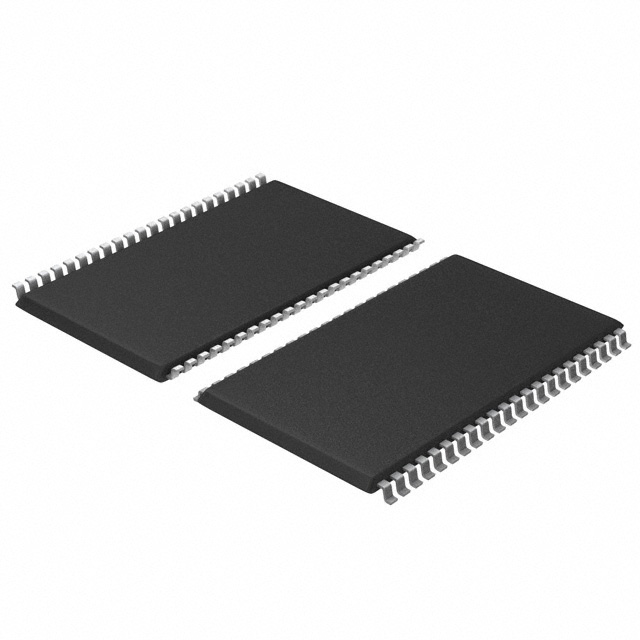AT28LV256-20TI
Manufacturer No:
AT28LV256-20TI
Manufacturer:
Description:
IC EEPROM 256KBIT PAR 28TSOP
Datasheet:
Delivery:





Payment:




In Stock : 0
Please send RFQ , we will respond immediately.









AT28LV256-20TI Specifications
-
TypeParameter
-
Supplier Device Package28-TSOP
-
Package / Case28-TSSOP (0.465", 11.80mm Width)
-
Mounting TypeSurface Mount
-
Operating Temperature-40°C ~ 85°C (TC)
-
Voltage - Supply3V ~ 3.6V
-
Access Time200 ns
-
Write Cycle Time - Word, Page10ms
-
Memory InterfaceParallel
-
Memory Organization32K x 8
-
Memory Size256Kbit
-
TechnologyEEPROM
-
Memory FormatEEPROM
-
Memory TypeNon-Volatile
-
DigiKey ProgrammableNot Verified
-
PackagingTray
-
Product StatusObsolete
-
Series-
The AT28LV256-20TI is a specific model of the AT28LV256 series of integrated circuit (IC) chips. This particular chip offers a density of 256K (32K x 8) bits and operates with a voltage range of 2.7V to 6.0V. It has a maximum access time of 200ns. Some advantages and application scenarios of the AT28LV256-20TI chip are as follows:1. Non-volatile Memory: The AT28LV256-20TI is a non-volatile memory chip, which means it can retain data even when the power supply is removed. This makes it suitable for applications that require long-term data storage.2. High-Density Data Storage: With a capacity of 256K bits, this chip provides a reasonably large storage space for various applications, such as data logging, firmware storage, and data storage in embedded systems.3. Low Power Consumption: The AT28LV256-20TI operates within a low voltage range of 2.7V to 6.0V. This feature allows it to operate with a relatively low power consumption, making it suitable for battery-powered devices or any application where power efficiency is a concern.4. Fast Access Time: The maximum access time of 200ns ensures quick data retrieval, enabling efficient operations in time-sensitive applications.5. Robust and Reliable: The AT28LV256-20TI chip is designed to withstand harsh electronic environments. It is resistant to shocks, vibrations, and electromagnetic interference, ensuring reliable performance in various applications.6. Parallel Interface: This chip utilizes a parallel interface, which allows for straightforward integration with microcontrollers and other peripheral devices. This makes it easier to use in applications where data transfer between different components is required.Application scenarios where the AT28LV256-20TI chip can be utilized include:1. Embedded Systems: This chip can be used in various embedded systems like industrial control systems, consumer electronics, and medical devices. Its non-volatile memory capability allows for storing critical code or data that needs to be retained even after power cycles.2. Automotive Applications: Given its robustness and resistance to harsh environments, the AT28LV256-20TI can be employed in automotive applications where reliable and durable memory storage is required. This could include applications such as engine control units, airbag systems, and instrumentation.3. Communication Devices: The AT28LV256-20TI chip can be used in devices that require firmware storage, including routers, modems, and network switches. Its low power consumption is particularly useful in battery-operated communication devices.4. Industrial Control Systems: The chip's high density and non-volatile memory make it suitable for storing critical data or firmware in industrial control systems. It can be used in programmable logic controllers (PLCs), motor control systems, and other automation systems.5. Consumer Electronics: The AT28LV256-20TI chip can be employed in various consumer electronic devices requiring non-volatile memory, such as gaming consoles, set-top boxes, and digital cameras.Overall, the AT28LV256-20TI IC chip provides reliable, low-power, non-volatile memory storage with a moderate capacity, making it suitable for a range of applications where data retention, robustness, and efficient performance are essential.
AT28LV256-20TI Relevant information
-

CY7C1051H30-10ZSXIT
Infineon Technologies -
EM008LXOAB320CS1R
Everspin Technologies Inc. -
S25HS01GTDPMHB010
Infineon Technologies -
MT60B4G4HB-56B:G
Micron Technology Inc. -
CY15B104QI-20BFXIT
Infineon Technologies -
CY15V104QI-20BFXIT
Infineon Technologies -
CY15B104QI-20LPXIT
Infineon Technologies -
CY15B104QI-20LPXCT
Infineon Technologies -
CY15V104QI-20LPXCT
Infineon Technologies -
CY15V104QI-20LPXIT
Infineon Technologies







